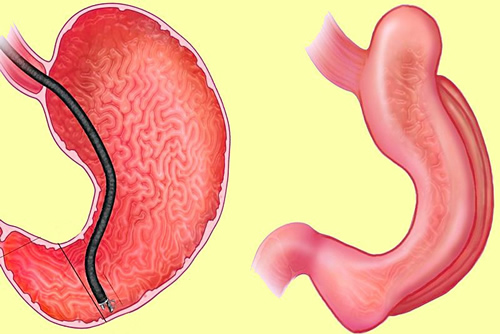
Endoscopic Sleeve Gastroplasty (also known as ESG) is a relatively new weight loss procedure which is performed endoscopically (using a telescope through the mouth to access the stomach) rather than laparoscopically (traditional keyhole surgery).
The idea is to use an internal stitching device to narrow the stomach from the inside so that portion restriction is induced.
Concerns about this procedure include the question as to whether results are as good as conventional sleeve and is the weight loss maintained for the long term?
Recently, a multicentre study from the USA published in 2017 (Ref: OBES SURG (2017) 27:2649–2655) looked at outcomes from 248 patients undergoing ESG over a 24 month period. At 24 months, data was available on about two thirds of patients who achieved a Total Body Weight Reduction of around 18%. This is below what is typically achieved with conventional bariatric procedures but more than typically achieved with diet and exercise programs or weight loss drugs.
My summary of the ESG procedure based on available evidence is as follows:
- The procedure is likely best suited to patients with BMI between 30 and 40 who are not interested to undergo conventional weight loss surgery
- Although enticing as an endoscopic procedure (and hence no surgical scars) its safety profile is probably no better than conventional laparoscopic sleeve gastrectomy
- Current studies are focused on at relatively low BMI patients and present short term follow up only.
- I suspect that many patients will regain a significant proportion of their initial weight loss over the ensuing years
- Converting the ESG into another, conventional procedure, such as sleeve gastrectomy or gastric bypass is much more complex than before the ESG was done.
- It is often necessary to wait two years or more for the ESG to stretch and mature so that revisional conventional surgery can be done
Currently there is no rebate from Medicare or insurance companies for this procedure which makes it a relatively costly undertaking. At this stage we have not chosen to introduce ESG into our clinic before more data is available on long term outcomes. Most patients interested in ESG will probably get the results they are looking for with conventional laparoscopic sleeve at a similar risk profile.